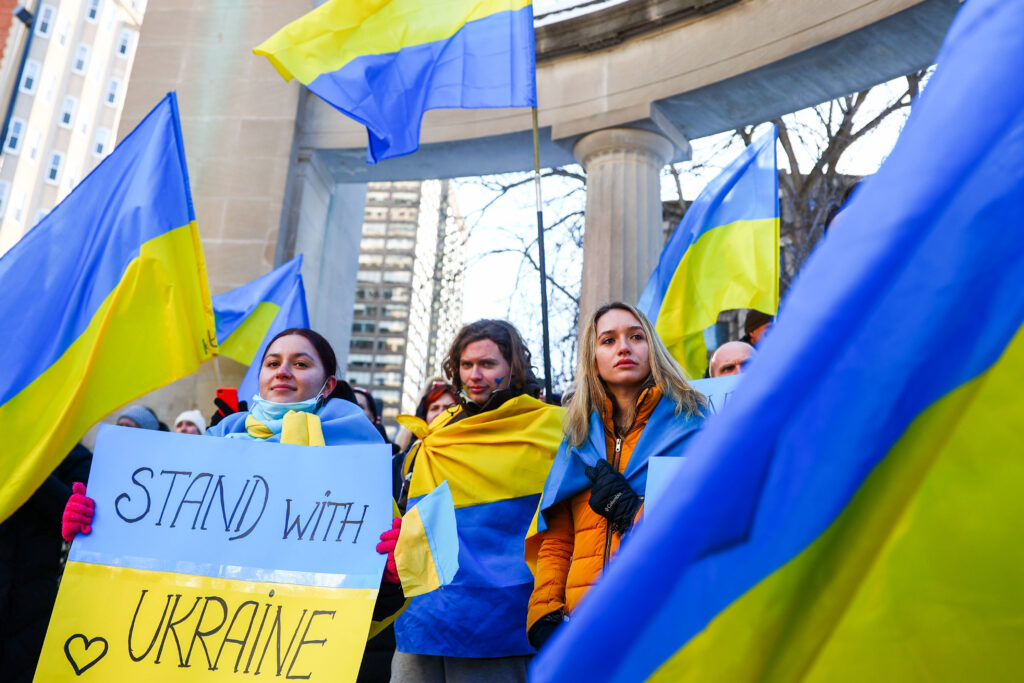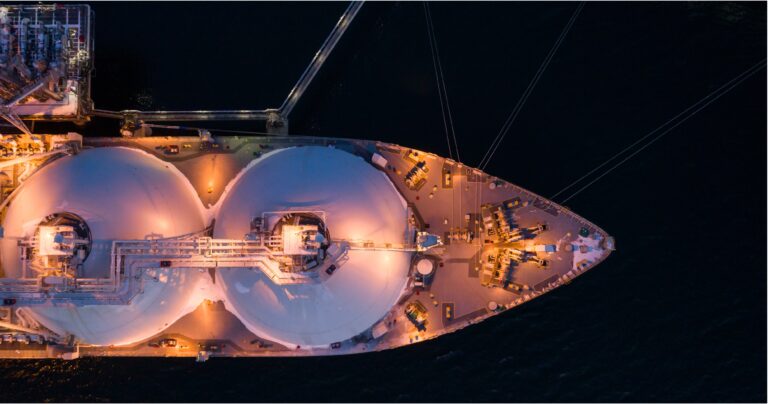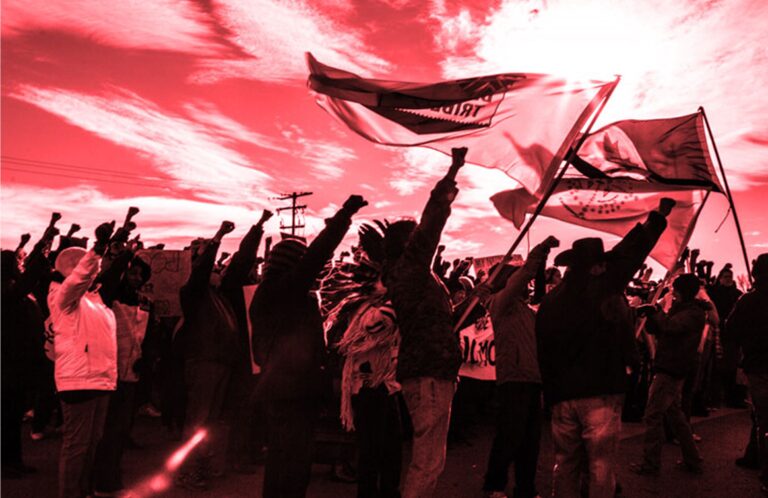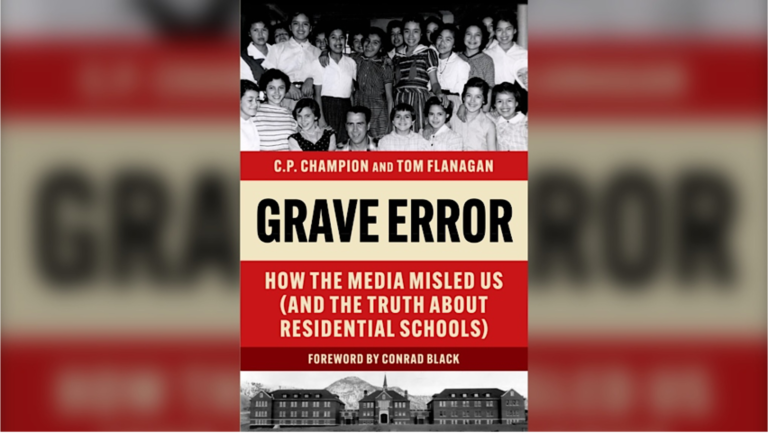As Russian mechanized forces rolled across the Ukrainian border at the end of February, Ukraine’s President Volodymyr Zelensky put out an urgent call for international volunteers. “This is the beginning of a war against Europe, against European structures, against democracy, against basic human rights, against global order of law, rules and peaceful coexistence,” Zelensky said in his widely-circulated statement. “Anyone who wants to join the defence of Ukraine, Europe and the world can come fight side by side with the Ukrainians against Russian war criminals.” Former soldiers from all over answered the call. One of them was “Wali.”

Wali is the nom de guerre of a Canadian Armed Forces veteran who hails from rural Quebec. He served two tours of duty in Afghanistan with the famed Royal 22nd Regiment (a French-speaking infantry unit commonly known as the Vandoos). In Afghanistan he earned a reputation as an elite sniper – perhaps one of the world’s best. Shortly after he left the Canadian military in early 2015, he almost immediately headed back into combat, this time as a volunteer with the Kurdish Peshmerga in Northern Iraq where he fought against Islamic State for a short time. Since then, he’s made his living as an IT consultant.
But a desk job is no place for a warrior. As soon as the invasion of Ukraine began, Wali knew he had to head to the front once more. “I have a duty to three things,” he says, listing them off on his fingers. “My family. My community. And mankind.” That third obligation had suddenly become paramount. Now, after more than a month of fighting in Ukraine, Wali has returned to his family and community once more. Just before he left, he shared his experiences and observations in an exclusive interview with C2C Journal filmed by Canadian video-journalist Shant Khatcherian in the central Ukrainian city of Dnipro. His wide-ranging discussion offers insights into how the conflict in Ukraine is going and where the 21st century’s most dangerous conflict might be headed.
Which Way to the Front?

Within the rarefied world of elite snipers, Wali is something of a celebrity. He hosts a French-language website, Livres De Wali, that promotes several books he has written (available in both English and French) about his experiences as a sniper in Afghanistan. He is also an accomplished photographer and, between firefights in northern Iraq, he documented the plight of civilian refugees on video and in photo essays. As he described it at the time, he had “a gun in one hand and a camera in the other.” Today, he’s already planning his next book – on Ukraine.
Given his fame and social media presence, Wali’s arrival in Ukraine was widely seen as significant by his hosts – a factor he says allowed him to skirt a few rules. (One potentially tense situation involving the police and his lack of proper papers eventually resolved itself with a round of selfies.) Despite his outsized reputation and willingness to talk to journalists, however, Wali says his main goal is to bring greater attention to the plight of Ukraine and its citizens, not himself. “Modern warfare is not a place for individual glory,” he states grimly. “Modern warfare is a war between machines. In the middle of this storm of steel, soldiers are just tiny humans trying to survive.”

Wali was among the first contingent of foreign volunteers to enter Ukraine following Zelensky’s appeal. It was a worrisome time. Russian forces were pushing into the suburbs of Kyiv and steadily encircling the capital city. Zelensky himself was a hunted man who said he expected to be assassinated. And much of the world expected Ukraine to collapse in short order. “The Russians were pushing very quickly. So we needed to move as fast as possible to the frontline,” Wali recalls.
This meant Wali was also among the first to experience the complications arising from efforts to integrate this flood of international fighters, who varied widely in their experiences and motivations, into an existing military structure. Rather than sign a six-month contract with the Ukrainian military, Wali chose to remain as an independent volunteer visiting on a temporary visa. While this gave him greater flexibility, it also meant some significant sacrifices.
“When you’re fighting for the Canadian Forces or the American Army, you don’t even have to know where Afghanistan is on a map,” he says. “You basically get on a plane. You land and they take you to a base. And you just do your job.” Fighting as a volunteer, however, means all those logistical issues become personal responsibilities. “Should I bring my own helmet?” Wali recalls asking himself. “Anything that sounds simple in the normal army can be very complicated as a volunteer.” Besides a lack of pay, he also had no insurance in case he was injured or killed. “When you are [a] volunteer, you have to sacrifice many things. I am losing money risking my life,” he muses, wondering aloud if it would be possible to write computer code if he lost a hand in combat.

Once he was directed towards the front, Wali found further confusion and complications. “The language barrier is a huge issue,” he reports. Like most members of the International Legion, Wali does not speak Ukrainian. “It is a big problem to synchronize with units. You go out on patrol and have things to say like, ‘Get into the truck because we are getting shelled.’” Without the ability to communicate, there is also a greater risk of “friendly” fire, in which a unit is mistakenly shot at, shelled or bombed by its own forces – a significant source of casualties, including four Canadians in Afghanistan. The Ukrainian military has tried to overcome this obstacle by assigning at least one English-speaking Ukrainian soldier for every five foreign fighters, but progress has been slow and uneven.
‘If I had all the equipment, communication and so on that I had in Afghanistan, it would be a slaughter of Russians,’ Wali says with his usual bluntness and candour.
Perhaps worst of all, despite his much-heralded skills as a sniper, Wali initially found himself without any of the tools of his trade. “All the good equipment was already in use,” Wali says resignedly. “Because you’re a civilian, you cannot bring [your own] military equipment. So let’s say you have this perfect rifle, you cannot bring it, because you don’t have the permit. You cannot just buy a machine gun and bring it with your visa.”

Once a scoped rifle was finally procured for him, he found he still lacked the accoutrements necessary for success, such as a range finder and thermal vision scope. Neither did he have a spotter – a sniper’s partner who helps to identify targets and adjust aiming. As a result, Wali spent his first weeks assisting Ukrainian National Guard units fighting on the northern front in Irpin, a city just north of Kyiv. At one point Wali was ordered by a civilian commander to take up a position in an observation post surrounded by Russian tanks. “I told them: ‘I don’t have the right equipment…cannot do anything at night. I’m just a target, sitting in a trench.’”
“If I had all the equipment, communication and so on that I had in Afghanistan, it would be a slaughter of Russians,” Wali says with his characteristic bluntness and candour. Had he been properly equipped, he says he would have set himself up well-camouflaged in the woods, spotted Russian targets and sent requests for artillery strikes and close air support by low-flying attack planes. Observing and gathering intelligence are also key roles for snipers. Unfortunately, the Ukrainian military has not yet reached this level of harmonisation. In fact, during his brief tour of duty, Wali discovered that different units in the Ukrainian military were using different forms of firing coordinates, adding even more confusion and risk.

The Sledgehammer Doctrine
After attempting to take most of Ukraine’s major cities in a coordinated set of ground, airborne and naval strikes at the end of February, Russia’s invasion stalled, largely due to the surprisingly tenacious resistance by the Ukrainians and Russian blunders in logistics and coordination. Since then, the conflict has leaned increasingly on artillery in many areas – with the Russian preference for brute force coming to the fore, and Ukraine working desperately to answer back with its own borrowed artillery. (Canada being among the countries shipping modern howitzers overseas.)
“They don’t have any finesse,” observes Wali of the enemy. “The Russians think like this: ‘We think [the enemy] is in this building, so let’s destroy the whole neighbourhood.’” The result of such an approach to war-making is visible for all to see. One night, he recalls, “I was looking at this amazing sunset, very beautiful. And then I realized: ‘Oh, I’m not looking at a sunset, that’s fire; it’s the city burning.’”
The ruthlessness characteristic of Russian military operations was also evident in their propaganda efforts. After it was reported that the “famous” Canadian sniper Wali had arrived in Ukraine, a rumour quickly spread on pro-Russian social media channels that he’d been killed in the besieged city of Mariupol almost as soon as he arrived. “I was the last person to hear about my own death,” he chuckles grimly. “I think I died last week also. I’ve died a few times.” A more effective piece of propaganda, Wali figures, would have been to claim that he’d been deliberately killing civilians. “That would have been perfect, because how can I say it isn’t true?” he suggests. “So they have lots of guns and firepower, but they’re not sophisticated.”

In eventually turning back Russian thrusts on Kyiv, Kharkiv and Mykolaiv, Ukraine has relied heavily on western military technology and doctrine. Many NATO countries have been supplying the Ukrainians with weapons systems that are much more effective than the Russians’ sledgehammer approach. Wali said he found the U.S.-made Javelin anti-tank guided missile – which has since become world-famous in Ukrainian hands – remarkably easy to use. He actually taught himself how to use the Javelin by reading the instruction manual and watching a few YouTube videos. An American volunteer fighting in Ukraine who asked not to be named told C2C Journal much the same thing. “A few minutes with the manual is all you need,” he said. “Set it to direct or top attack mode, lase the target, fire on lock tone. And it’s fire and forget.”
These shipments of western armaments are crucial, advises Wali. “You need modern weapons to fight against a modern army. You cannot win just with courage.” Yet he adds an important caveat. “Sending weapons is simple. But war is complicated. And very human.” Even if firing a Javelin is relatively straightforward and easy to learn, new recruits still need to be trained in how to operate in combat conditions.

Wali recounts one horrific moment when two undisciplined Ukrainian conscripts were too stubborn to follow basic battlefield common sense. Hunkered down in a trench in a forest in the early morning, Wali kept urging everyone to keep their heads down. But the two Ukrainian newcomers said they were bored and left the trench to have a smoke. The morning is an especially dangerous time, Wali notes, since the ground is cool and tanks can easily spot enemy soldiers using thermal vision scopes. “They went close to the edge of the woods, and I said, don’t do that! Come back, come back! That’s very dangerous!” They refused to listen to him, so he got out of there.
“Maybe 20 seconds later, there was a huge explosion nearby. I could not hear from my ear on one side. It smelled like…death. I went back to the trench. Maybe five metres away, I saw one of the Ukrainian soldiers. His legs were destroyed, and the body was f—–…It was over for him. Then I saw the other. One leg was gone, you could see all of the flesh and blood. The rest of the body was in a very bad state. He had his eyes closed, but he was still breathing and obviously in a huge amount of pain. Then he took his last breath, and collapsed. That’s how modern warfare works. You go out of your trench to smoke, you are careless, and you get killed instantly.”
As for where the war is heading, Wali suspects history holds a clue. ‘I’m going to guess this war will be a bit like the First World War,’ he says.
The vast majority of a soldier’s time on a modern battlefield, he says, is consumed with protecting oneself. Boredom thus becomes another enemy to confront. And glory is both rare and fleeting. “Most soldiers are killed without even seeing any enemy,” Wali adds.
A Personal War
It takes a special kind of courage to risk one’s life for a country not your own. When he first travelled to Afghanistan and Iraq, Wali was not yet a father. Parenthood has provided a deeper appreciation for the consequences of war. “I understand why, in other wars, they send single guys first, not those who are married and have families, because it’s very hard emotionally. Especially for the family, it’s like hell.” In his rush to the front, Wali missed some crucial family events – most importantly his son’s first birthday. It is an experience he describes as “sad but necessary.” Sacrifices of this sort have strained relations with his wife and family. “Back in Canada, they are having nightmares thinking I might be dead,” he reflects quietly.

With his deeply-held conviction that war is a necessary response to terror and aggression, Wali finds himself at odds with his home province’s long tradition of pacificism and indifference to foreign conflicts. In trying to explain this conflict of opinion, he chuckles that perhaps he is making amends for his own family’s past behaviour – recounting an apocryphal story of a Quebec relative who once hid in a barn to avoid conscription during the Second World War, as well as a grandmother who believed it was too dangerous for her relatives to go overseas to fight Hitler.
And yet, he says, overall support for the current war in Ukraine is riding high in Quebec. “A lot of people [in Quebec] did not agree with Afghanistan and Kurdistan…But now, everyone agrees that we have to do something. Even my father-in-law said he knew the solution: put a bullet in [Russian President Vladimir] Putin’s head.”
Back to the Future
Asked for his assessment of the Russian war machine, Wali observes that “they’re strong. But they’re not as strong as we thought they would be.” Despite the many problems Wali experienced with language and basic coordination, Ukraine’s defenders clearly wield several critical advantages over the invaders, including a united and well-motivated population, a resilient military with a mindset for adaptation and, thanks to widespread international support, a growing stream of new equipment like howitzers, armed drones and anti-tank missiles. And yet Russia still enjoys a substantial edge in the sheer size of its military forces and large inventory of armoured vehicles – plus its bloody-minded willingness to destroy infrastructure and inflict civilian casualties.
As for where the war is heading, Wali suspects history holds a clue. “I’m going to guess this war will be a bit like the First World War,” he says. What began in the fall of 1914 as a rapid war of manoeuvre and deep thrusts by the German forces of Kaiser Wilhelm II through Belgium, Holland and northeastern France soon deteriorated into a long stalemate defined by trench warfare and horrifically bloody but often pointless frontal assaults and artillery duels. With Russia shifting the vast majority of its resources to the eastern Donbas region, where Ukraine has spent the last eight years building up multiple layers of defences, Wali believes a similar shift is likely.

By delaying their initial invasion until mid-winter, after several months of bluffs and posturing, Wali suspects the Russians also botched their execution by failing to account for the weather. In spring and early summer, Ukraine is prone to becoming a huge sea of mud – similar in that respect to the wintertime conditions of the First World War. And while tanks and armoured vehicles can get around in muddy terrain, supply lines need more reliable transportation routes. “So much mud makes a huge difference,” he advises. “An army needs roads.”
Wali suspects the war will enter a static phase until the ground freezes again and the trees drop their leaves, both of which shift the advantage from defender to attacker. “Next winter, I think there’s going to be a big battle again,” he predicts, with the Russians attempting to push out of their enclaves in eastern Ukraine. Until then, he predicts, it will be “fortifications, barbed wire and a stalemate.” A curved front stretching from the port city of Mykolaiv in southern Ukraine near the Black Sea, to Kharkiv in the northeast seems the most likely. Of course, war delivers many surprises, and at the time of this article’s publication Russian forces had recently vanquished Mariupol and were advancing in another important part of eastern Ukraine.

Given these parallels, should we also expect the conflict to drag on for four long years, as was the case with the First World War? The Great War only ended when Germany’s capacity to continue fighting collapsed due to an Allied naval blockade that cut off imported raw materials and food, plus the arrival in France of 1 million fresh Allied troops from the United States and the disintegration of Germany’s main ally, Austria-Hungary.
Wali doesn’t expect it will take nearly as long for Putin’s Russia to feel the squeeze from trade sanctions and other financial weaponry. While most of Russia’s military technology is domestically produced, the country still relies on foreign suppliers for key high-tech inputs, such as computer chips. It has already been reported that Russia has shuttered several tank factories due to a lack of parts. And U.S. Commerce Secretary Gina Raimondo recently told a Senate committee that computer chips from household appliances such as dishwashers and fridges are apparently being repurposed for use in Russian tanks and other military hardware.
‘I have a duty to three things,’ he says, listing them off on his fingers. ‘My family. My community. And mankind.’ That third obligation had suddenly become paramount.
“A lot of people are in denial in Russia. They think: ‘Oh, we don’t have Microsoft, we’ll build our own.’ No. Russia is going to suffocate with no trade and lack of strategic components. I think one morning there is going to be a coup,” says Wali. “Maybe in six months, one year, two years. But I think it’s going to end like that.” As a former Soviet-era KGB agent, Putin is likely keeping a close eye on everyone in his inner circle. But political pressure is mounting inside Russia, and likely within the Kremlin as well, to bring an end to this untenable war.
If there is a regime change in Russia, it will be up to whomever takes over from Putin as Russian leader to put an end to the conflict. “It depends on the new power, but I think there’s going to be some kind of peace. And I think the peace should be realistic,” says Wali. While Zelensky says his goal is to expel all Russian troops from all Ukrainian territory – including the Crimean Peninsula which Russia seized in 2014 – he will likely have to come to the negotiating table prepared to make some sort of bargain, Wali believes. And for that reason, he suggests total victory or total defeat by either side may not be possible. “A peace that is hated by everybody is a good peace,” Wali concludes. And as every soldier knows, a good peace is better than any war.
Fin DePencier is a Canadian freelance journalist based in Armenia reporting on regional conflicts and politics.
Source of main image: Shant Khatcherian.






